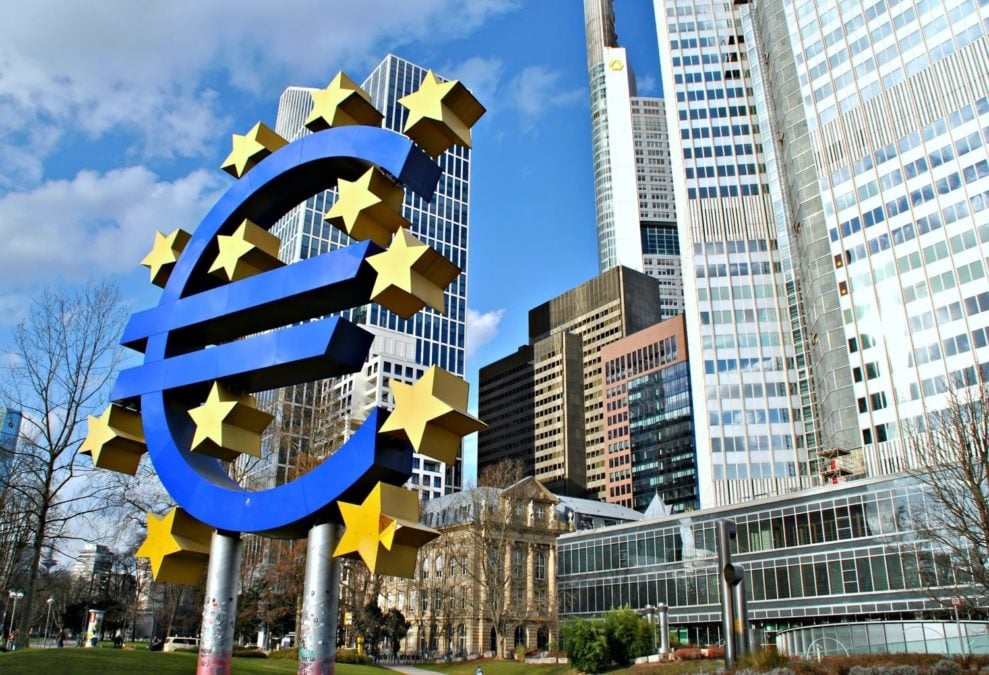European Central Bank advisors have doubled down on their criticism of Bitcoin  BTC
BTC
-0.87%
, suggesting it has failed to become a global decentralized cryptocurrency and has instead fallen victim to fraud and manipulation.
In an ECB blog post on Thursday morning, Ulrich Bindseil and Jürgen Schaaf described the U.S. Securities and Exchange Commission’s approval of spot Bitcoin exchange-traded funds in January as “the naked emperor’s new clothes,” arguing it doesn’t change the fact that “Bitcoin is not suitable as a means of payment or as an investment.”
The ECB post goes on to suggest that for “disciples” of Bitcoin, the ETF approvals are seen as confirmation that Bitcoin is safe and its subsequent price rally is proof of its triumph. Bindseil and Schaaf said they disagreed with both claims, claiming their view that the fair value of Bitcoin is zero. They further argued that another boom and bust cycle for Bitcoin was a “dire perspective,” and that the collateral damage would be “massive” — citing environmental damage and a redistribution of wealth at the expense of the “less sophisticated.”
While the blog post states that the views expressed don’t necessarily represent those of the ECB, both authors have roles with the central bank. Bindseil is the ECB’s Director General of market infrastructure and payments, and Schaaf is an ECB adviser in the same unit. The ECB also promoted the blog post via its official X account.
Bankers say Bitcoin transactions are ‘inconvenient’
The authors argued Bitcoin transactions are still “inconvenient, slow and costly,” adding that outside of criminal activity on the darknet, it is “hardly used for payments at all” — citing that even El Salvador granting Bitcoin legal tender status did not establish it as a successful means of payment.
They suggest that regulatory initiatives to combat large-scale criminal use of the Bitcoin network have not been successful, its price is manipulated and that mining of Bitcoin using its proof-of-work consensus mechanism “continues to pollute the environment on the same scale as entire countries, with higher Bitcoin prices implying higher energy consumption.”
Following recent “emergency requests” from the U.S. Department of Energy to collect crypto miner energy use data — citing bitcoin’s price rise as evidence — Pierre Rochard, VP of Research at bitcoin miner Riot Platforms, disagreed with the assessment, pointing to a recent report on the impact of crypto mining on power grids. “The science is clear, experts agree that bitcoin stabilizes the grid thanks to demand-response. There’s no ‘emergency’ to collect data,” he said at the time.
Other criticisms from the advisors include Bitcoin not being suitable as an investment as doesn’t generate cash flow, that it cannot be used productively like commodities and that it offers no social benefit. “Less financially knowledgeable retail investors are attracted by the fear of missing out, leading them to potentially lose their money,” they added.
Responding to the post on X, climate tech investor and Managing Partner at CH4 Capital, Daniel Batton, said, “This is bullish. After the ECB published ‘Bitcoin’s last stand’ — Bitcoin has risen 197%. Keep the FUD coming, ECB. There are over 400 million people globally who have been vaccinated against it now, growing exponentially.”
ECB’s ‘last gasp’ argument marked Bitcoin bear market bottom
This latest criticism follows an ECB blog post in November 2022, saying Bitcoin was on its “last gasp before the road to irrelevance” — remarks that coincided with a bear market bottom for the largest cryptocurrency by market cap following the collapse into bankruptcy of crypto exchange FTX.
At the time, the ECB argued that Bitcoin’s premise as a financial asset that would inevitably continue to rise was wrong. However, Bitcoin reached what was to become its bear market low of roughly $16,000 on Nov. 21, 2022, about a week before the post, and has since risen by 225% to $51,930, according to The Block’s price page.

BTC/USD price chart. Image: The Block/TradingView.
Answering the question “why is this dead cat bouncing so high,” the ECB advisors suggested that expectations of a turnaround in U.S. Federal Reserve interest rate policy, Bitcoin’s halving event in April — when the block reward for miners gets cut in half — and the recent spot Bitcoin ETF launches were behind the move.
Disclaimer: The Block is an independent media outlet that delivers news, research, and data. As of November 2023, Foresight Ventures is a majority investor of The Block. Foresight Ventures invests in other companies in the crypto space. Crypto exchange Bitget is an anchor LP for Foresight Ventures. The Block continues to operate independently to deliver objective, impactful, and timely information about the crypto industry. Here are our current financial disclosures.
© 2023 The Block. All Rights Reserved. This article is provided for informational purposes only. It is not offered or intended to be used as legal, tax, investment, financial, or other advice.


